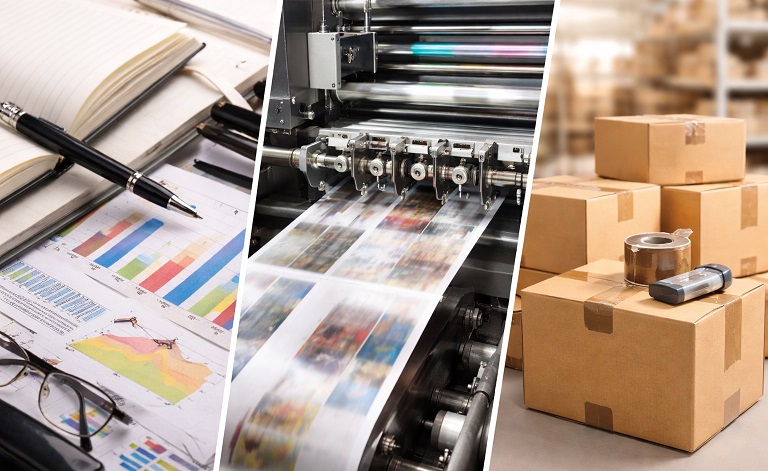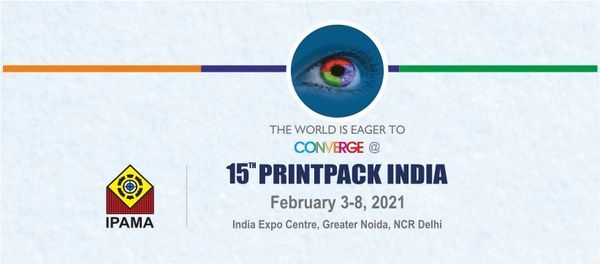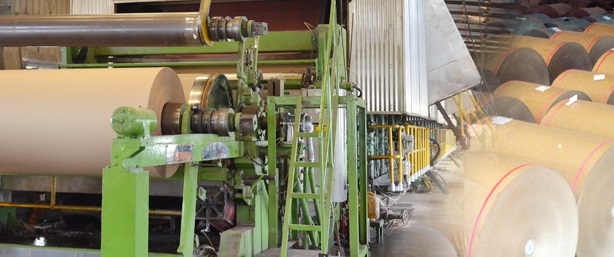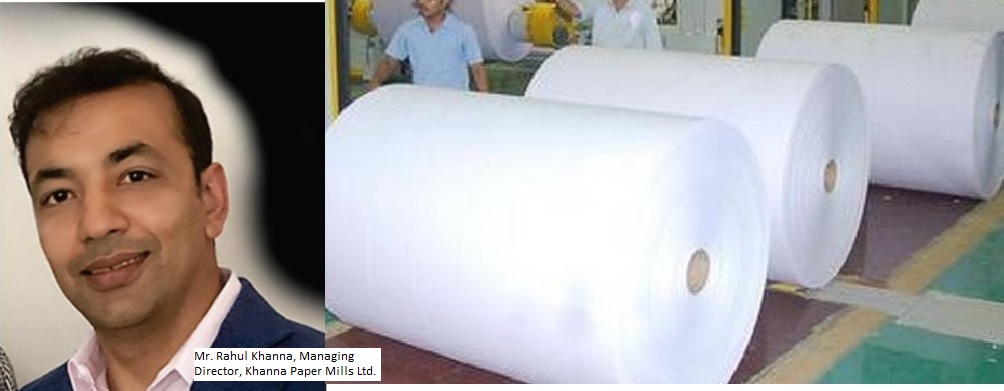EBMA: With books exempt from GST, imported finished books enter India tax-free; notebook prices may climb 15–20% with GST hike

EBMA: With books exempt from GST, imported finished books enter India tax-free; notebook prices may climb 15–20% with GST hike
-Exercise Books Manufacturers Association Seeks GST Relief on Paper and Notebooks; Appeals to Finance Minister for Urgent Intervention
The Pulp and Paper Times
Mumbai: The Exercise Books Manufacturers Association (Maharashtra State), led by its President Mr. Amrut P. Shah, has written to the Union Finance Minister, highlighting urgent issues arising from the current GST treatment on paper, notebooks, and allied inputs. The Association has requested immediate relief and clarifications, cautioning that the existing structure is creating distortions, escalating costs, and threatening the competitiveness of the domestic publishing and notebook manufacturing industry.
At present, books and notebooks are exempt from GST (0%), whereas paper and paperboard attract 18% GST. This mismatch, according to the Association, has resulted in an inverted duty structure with far-reaching consequences for affordability, compliance, and industry viability. Paper is the primary raw material for books and notebooks, and with no input tax credit (ITC) available on exempt outputs, the entire tax burden gets loaded into the cost of production. Notebook manufacturers are compelled to pass this on to consumers, leading to 15–20% higher retail prices. The Association stressed that this disproportionately burdens students and parents, particularly from lower-income households, and undermines the government’s objective of keeping education affordable.
The representation pointed out that the challenges go beyond cost escalation:
1. Purchase of Raw Materials: Paper mills are unwilling to supply at 0% tax. There is no mechanism—whether concessional purchase, GST refund, or tax reversal—that enables manufacturers to obtain raw material without bearing the burden of 18% GST.
2. Boards, Printing, and Finishing Inputs: Boards (18%), printing (5%), lamination, gum, ink, and other consumables attract GST. Since final output is exempt, ITC on these items remains blocked.
3. Accumulated Input Stock: Many manufacturers hold inventories of paper and consumables purchased with GST. Guidance is needed on how to treat such accumulated ITC when outputs remain exempt.
4. Mixed Supplies and Allied Products: While books and notebooks are exempt, allied products like diaries, memo pads, and registers are taxable. The lack of clear rules for ITC treatment in such mixed supplies creates confusion, encourages malpractice, and penalizes genuine traders.
5. Common Input Services: Rent, freight under reverse charge mechanism, utilities, and professional services all attract GST. Rules for proportional ITC reversal remain unclear, leading to disputes.
6. Capital Goods and Machinery: Eligibility of ITC on machinery (existing and new) remains uncertain when used for both exempt (books) and taxable (stationery) products.
The Association also highlighted the wider industry concerns being voiced across the paper ecosystem. The Federation of Paper Traders’ Associations (FPTA) has already urged that the sudden GST increase on paper and board from 12% to 18% has shocked MSMEs. This traps working capital, blocks refunds, and destabilizes small and medium units.
The representation emphasized that paper is an essential commodity, not a luxury item. It is vital for education, hygiene, and packaging of food and medicines. The paper sector supports more than half a million direct jobs and nearly two million indirect jobs. Excessive taxation, therefore, not only endangers livelihoods but also disrupts the entire educational supply chain.
To address these challenges, the Association strongly reiterated the long-standing industry demand that paper and books be brought under a uniform 5% GST slab. Such a move, they argue, would eliminate the inverted duty structure, prevent cost escalation, stabilize demand, and ensure fairness across the value chain.
Another pressing concern is the confusion caused by end-use based taxation. The same grade of paper attracts 0% GST when used for notebooks, but 18% GST when used for registers or duplicate books. Since end-use cannot be determined at the point of sale, this creates ambiguity, encourages misuse, and penalizes genuine stakeholders.
The Association also drew attention to the threat posed by imports. With books exempt from GST in India, imported finished books and notebooks enter the market at zero tax. In contrast, domestic manufacturers, burdened with high input GST costs, cannot remain competitive. Imports of paper from China, Indonesia, and ASEAN countries could become cheaper than domestic paper once 18% GST is factored in. This risks displacing domestic production, undermining MSME notebook manufacturers and printing presses, eroding employment, and weakening the government’s Make in India initiative. The Association warned that once domestic production capacity weakens, India may become dependent on imports even for basic educational materials, posing a long-term risk to self-reliance.
In light of these challenges, the Association made the following submissions to the Finance Minister:
• Issue a comprehensive clarification circular on GST applicability to paper, notebooks, and allied inputs.
• Introduce a relief mechanism, either through concessional purchase at 0%, refund of GST paid, or ITC credit for manufacturers of exempt educational products.
• Rationalize the tax structure by bringing paper and books under a uniform 5% slab to prevent distortions and stabilize pricing.
• Provide explicit rules for ITC treatment in cases of mixed supplies and machinery used for both exempt and taxable outputs.
• Protect students and families from tax-driven cost escalation by ensuring that the policy goal of affordable education is not undermined.
• Safeguard domestic industry by considering duty equalization or credit mechanisms to prevent imports from displacing local manufacturers.
Mr. Amrut P. Shah, President of the Association, emphasized that the current GST structure directly affects millions of students and families while simultaneously eroding the competitiveness of the organized publishing and notebook manufacturing sector. A timely government intervention, he said, will not only protect the affordability of education but also safeguard employment and investment in this vital industry.
The Association concluded by expressing gratitude to the Finance Minister for her leadership in building a transparent and equitable tax system and requested her urgent attention to review the GST structure on paper and books, to provide fair relief and ensure a viable future for the domestic industry.
Web Title: EBMA: With books exempt from GST, imported finished books enter India tax-free; notebook prices may climb 15–20% with GST hike




 Join WhatsApp Group
Join WhatsApp Group Join Telegram Channel
Join Telegram Channel Join YouTube Channel
Join YouTube Channel Join Job Channel (View | Submit Jobs)
Join Job Channel (View | Submit Jobs) Join Buy Sell Channel (Free to Submit)
Join Buy Sell Channel (Free to Submit) Paper News Headlines Channel (Free to read)
Paper News Headlines Channel (Free to read)














